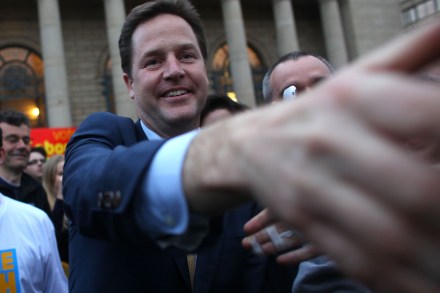Nick Clegg gives the Tories the go-ahead
So Nick Clegg has finally spoken – and his words will be welcomed by the Tories. In an address outside of the Lib Dem HQ on Cowley St, he reiterated his previous argument that “whichever party gets the most votes and the most seats, without gaining a majority, has the first right to form a government.” But added that “it seems this morning that the Conservative Party have the most votes and the most seats … it is for the Conservative Party to prove that it is capable of governing in the national interest.” What this means in practice isn’t 100 percent certain – although it doesn’t sound good for









